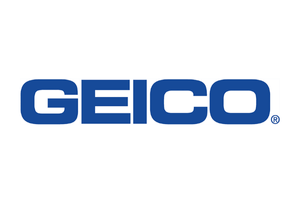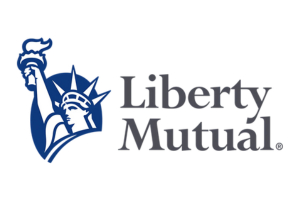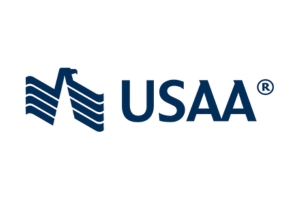Does homeowners insurance cover appliances?
Are you wondering if your homeowners insurance covers appliances? This article explores the topic and provides insights into what is typically covered and what might require additional coverage. Find out how to protect your appliances and ensure you have the right insurance policy in place.
Read more Secured with SHA-256 Encryption





Save Money by Comparing Insurance Quotes
Compare Free Home Insurance Quotes Instantly




Table of Contents
Table of Contents


Insurance Content Managing Editor
Daniel S. Young began his professional career as chief editor of The Chanticleer, a Jacksonville State University newspaper. He also contributed to The Anniston Star, a local newspaper in Alabama. Daniel holds a BA in Communication and is pursuing an MA in Journalism & Media Studies at the University of Alabama. With a strong desire to help others protect their investments, Daniel has writt...
Daniel S. Young


Licensed Insurance Producer
Dani Best has been a licensed insurance producer for nearly 10 years. Dani began her insurance career in a sales role with State Farm in 2014. During her time in sales, she graduated with her Bachelors in Psychology from Capella University and is currently earning her Masters in Marriage and Family Therapy. Since 2014, Dani has held and maintains licenses in Life, Disability, Property, and Casualt...
Dani Best
Updated January 2025
Homeowners insurance provides valuable coverage for your home and its contents. It protects you financially in case of unexpected events such as theft, fire, or natural disasters. But what about your appliances? Are they covered under your homeowners insurance policy? Let’s delve into the world of homeowners insurance and find out.
Understanding Homeowners Insurance
Before we dive into the specifics of appliance coverage, let’s take a moment to understand what homeowners insurance is all about. Homeowners insurance is a form of property insurance that covers your home, its contents, and liability for accidents that may occur on your property.
When you own a home, it is important to have homeowners insurance to protect your investment. Your home is likely one of the biggest assets you own, and having insurance coverage can provide you with peace of mind knowing that you are financially protected in case of any unforeseen events.
Homeowners insurance is a contract between you and the insurance company. In exchange for paying a premium, the insurance company agrees to provide financial protection for your home and personal belongings. This protection can come in the form of repairing or replacing your home or belongings if they are damaged or destroyed due to covered perils such as fire, theft, or natural disasters.
What is Homeowners Insurance?
Homeowners insurance is not just limited to covering the structure of your home. It also extends coverage to other structures on your property, such as garages, sheds, or fences. Additionally, homeowners insurance provides liability coverage, which means that if someone gets injured on your property and you are found legally responsible, your insurance policy may help cover the costs of medical bills or legal fees.
It’s important to note that homeowners insurance is not a one-size-fits-all policy. There are different types of homeowners insurance policies available, and it’s essential to choose the one that best suits your needs. Factors such as the value of your home, the location, and the level of coverage you desire will all play a role in determining the cost and coverage of your policy.
The Basics of Homeowners Insurance Policies
Homeowners insurance policies typically consist of several components. These include dwelling coverage, personal property coverage, and liability coverage. Dwelling coverage protects the structure of your home, including the walls, roof, and foundation, from covered perils. Personal property coverage, on the other hand, protects your belongings inside your home, such as furniture, electronics, and clothing. Liability coverage provides financial protection if someone sues you for bodily injury or property damage that occurs on your property.
While these components are standard in most homeowners insurance policies, it’s important to review your policy and understand the specific coverage limits and exclusions. Some policies may offer additional coverage options, such as coverage for valuable items like jewelry or artwork, or additional living expenses coverage, which can help cover the costs of temporary housing if your home becomes uninhabitable due to a covered loss.
Remember, homeowners insurance is not just a requirement by mortgage lenders; it is a vital tool to protect your most valuable asset. By understanding the basics of homeowners insurance and the components of a policy, you can make informed decisions when selecting coverage that suits your needs and provides the peace of mind you deserve.
Free Home Insurance Comparison
Compare Quotes From Top Companies and Save
Secured with SHA-256 Encryption
Types of Homeowners Insurance Coverage
When it comes to homeowners insurance coverage, there are different types available. Let’s take a closer look at the three main types:
Dwelling Coverage
Dwelling coverage protects the physical structure of your home and any attached structures such as a garage or deck. It typically covers damage caused by perils like fire, windstorms, and vandalism.
For example, if a fire breaks out in your home and causes extensive damage to the structure, dwelling coverage will help cover the cost of repairs or rebuilding. Similarly, if a powerful windstorm causes your roof to collapse, this type of coverage will provide financial assistance to restore your home to its previous condition.
It’s important to note that dwelling coverage typically does not include coverage for the land your home is built on. The focus is on the physical structure and its attached components.
Personal Property Coverage
Personal property coverage protects your belongings inside your home, including appliances, furniture, electronics, and clothing. It usually covers perils such as theft, fire, and certain natural disasters.
Consider a scenario where your home is burglarized, and valuable items such as jewelry, electronics, and artwork are stolen. Personal property coverage will help reimburse you for the value of these items, allowing you to replace them and recover from the loss.
In addition to theft, personal property coverage also extends to damage caused by covered perils. For instance, if a fire damages your furniture or a burst pipe ruins your electronics, this type of coverage will assist in covering the cost of repair or replacement.
Liability Coverage
Liability coverage provides financial protection if someone is injured on your property and decides to take legal action against you. It helps cover medical expenses, legal fees, and damages awarded as a result of a lawsuit.
Imagine a situation where a guest slips and falls on your icy driveway during the winter. If they decide to sue you for their injuries, liability coverage will help cover their medical bills and any legal costs associated with the lawsuit. It also provides coverage if you accidentally cause damage to someone else’s property.
In addition to physical injuries, liability coverage may also protect you in cases where you are accused of defamation or slander. If someone claims that you have caused harm to their reputation through false statements, this type of coverage can help cover legal expenses and potential damages.
Understanding the different types of homeowners insurance coverage is essential for protecting your home, belongings, and financial well-being. By having the right coverage in place, you can have peace of mind knowing that you are prepared for unexpected events and potential liabilities.
Does Homeowners Insurance Cover Appliances?
When it comes to appliances, homeowners insurance typically offers coverage for damage caused by perils covered under your policy. For example, if your appliances are damaged due to a fire, your homeowners insurance policy may reimburse you for the cost of repairing or replacing them.
However, the coverage provided by homeowners insurance for appliances can vary depending on the specific policy you have. It’s important to review your policy documents or speak with your insurance agent to understand the extent of coverage, including any limitations and exclusions that may apply.
Standard Policy Coverage for Appliances
Standard homeowners insurance policies usually cover appliances like refrigerators, stoves, washing machines, and dishwashers. These are considered essential household items and are typically included in the coverage provided by most policies.
When it comes to damage caused by covered perils, such as fire, lightning, or theft, your homeowners insurance may reimburse you for the cost of repairing or replacing the damaged appliances. This can provide peace of mind knowing that you have financial protection in case of unexpected events.
However, it’s important to note that the coverage for appliances may be subject to certain limits and deductibles. These limits determine the maximum amount the insurance company will pay for appliance-related claims, while deductibles are the out-of-pocket expenses you need to pay before the insurance coverage kicks in.
Limitations and Exclusions
While homeowners insurance does cover appliances, it’s important to note that there may be limitations and exclusions. These limitations can affect the amount of coverage you receive and the circumstances under which you can make a claim.
One common limitation is that the coverage for appliances may be based on their depreciated value rather than the cost of a brand new replacement. Appliances tend to lose value over time due to wear and tear, so the insurance company may only reimburse you for the current value of the damaged appliance.
Additionally, certain perils, such as flooding or earthquakes, may be excluded from your homeowners insurance policy. These natural disasters often require separate coverage, such as flood insurance or earthquake insurance, in order to protect your appliances and other belongings.
It’s important to carefully review your homeowners insurance policy to understand the specific limitations and exclusions that apply to your appliances. If you have any questions or concerns, don’t hesitate to reach out to your insurance agent who can provide clarification and guidance.
In conclusion, while homeowners insurance generally covers appliances, it’s crucial to understand the details of your policy to ensure you have adequate coverage. By reviewing your policy documents and speaking with your insurance agent, you can have peace of mind knowing that your appliances are protected in case of unexpected damage or loss.
Additional Coverage Options for Appliances
In addition to standard homeowners insurance coverage, there are other options available to ensure your appliances are fully protected.
When it comes to protecting your appliances, you want to make sure you have all the coverage you need. That’s why it’s important to explore additional options such as equipment breakdown coverage and home warranties.
Equipment Breakdown Coverage
Equipment breakdown coverage is an additional endorsement you can add to your homeowners insurance policy. This coverage can protect your appliances from mechanical or electrical breakdowns that are not caused by natural disasters or normal wear and tear.
Imagine this scenario: You wake up one morning, ready to start your day with a cup of coffee. But to your dismay, your beloved coffee maker refuses to turn on. You quickly realize that it has suffered an unexpected electrical breakdown. With equipment breakdown coverage, you can rest easy knowing that the cost of repairing or replacing your coffee maker will be covered, even if it’s not due to a natural disaster or normal wear and tear.
Not only does equipment breakdown coverage provide financial protection, but it also offers peace of mind. Knowing that your appliances are covered in case of unforeseen breakdowns can help alleviate the stress and inconvenience that comes with unexpected repairs.
Home Warranty vs. Homeowners Insurance for Appliances
Another option to consider is a home warranty. While homeowners insurance covers appliances in case of perils, a home warranty provides coverage for appliance repairs and replacements due to normal wear and tear. Home warranties are separate contracts and can be purchased independently or in addition to homeowners insurance.
Let’s say you have a refrigerator that has been faithfully keeping your food fresh for years. However, as time goes by, it starts showing signs of wear and tear. The motor begins to make strange noises, and you notice that it’s not cooling as efficiently as it used to. In this situation, a home warranty can come to the rescue.
With a home warranty, you can have peace of mind knowing that if your refrigerator breaks down due to normal wear and tear, you won’t have to bear the full cost of repairs or replacement. Instead, you can rely on your home warranty to cover the expenses, saving you money and providing a convenient solution.
It’s important to note that while homeowners insurance typically covers appliances in case of perils such as fire, theft, or natural disasters, it does not typically cover repairs or replacements due to normal wear and tear. This is where a home warranty can fill the gap, providing you with comprehensive coverage for your appliances.
Ultimately, the decision between equipment breakdown coverage and a home warranty will depend on your specific needs and preferences. It’s worth considering both options and comparing the coverage, costs, and terms to determine which one is the best fit for you and your appliances.
Free Home Insurance Comparison
Compare Quotes From Top Companies and Save
Secured with SHA-256 Encryption
Filing a Claim for Appliance Damage
If your appliances are damaged, it’s important to know when to file a claim and how the claim process works.
When to File a Claim
You should file a claim when the cost of repairing or replacing your damaged appliance exceeds your deductible. It’s a good idea to document the damage with photos and contact your insurance company as soon as possible to start the claim process.
The Claim Process Explained
Once you’ve filed a claim, your insurance company will assign an adjuster to review your claim and assess the damage. They may ask for additional documentation or evidence to support your claim. If approved, you will receive compensation to repair or replace your damaged appliances, subject to the terms and conditions of your policy.
In conclusion, homeowners insurance does cover appliances, but the extent of coverage depends on your specific policy. Standard policies typically offer coverage for appliance damage caused by covered perils, but it’s important to review your policy documents and speak with your insurance agent to fully understand your coverage limits and any additional coverage options available.
Frequently Asked Questions
Does homeowners insurance cover appliances?
Homeowners insurance typically covers appliances if the damage is caused by a covered peril, such as fire, theft, or vandalism. However, it’s important to review your policy to understand the specific coverage and any limitations.
What types of appliances are typically covered by homeowners insurance?
Common household appliances such as refrigerators, stoves, dishwashers, washing machines, and dryers are usually covered by homeowners insurance. However, coverage may vary depending on the policy and the cause of damage.
Are there any limitations to appliance coverage under homeowners insurance?
Yes, there may be limitations to appliance coverage. Some policies may only cover appliances up to a certain value or age. Additionally, damage caused by wear and tear or mechanical breakdown may not be covered.
What should I do if my appliance is damaged or destroyed?
If your appliance is damaged or destroyed, you should contact your insurance company as soon as possible to report the claim. They will guide you through the claims process and provide instructions on how to proceed, such as obtaining repair estimates or replacing the appliance.
Will homeowners insurance cover the full cost of replacing a damaged appliance?
Homeowners insurance typically covers the cost of replacing a damaged appliance based on its actual cash value (ACV), which takes into account depreciation. If you want coverage for the full replacement cost, you may need to consider adding an endorsement or purchasing a separate appliance warranty.
Can I claim an appliance as a tax deduction if it’s damaged and covered by homeowners insurance?
No, you cannot claim an appliance as a tax deduction solely because it’s damaged and covered by homeowners insurance. Tax deductions are generally related to business expenses or specific qualifying circumstances, not personal property damage.
Get a FREE Quote in Minutes
Insurance rates change constantly — we help you stay ahead by making it easy to compare top options and save.

